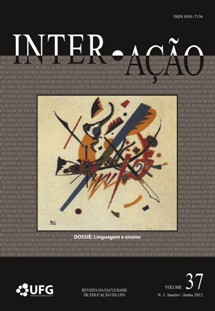THE PEDAGOGY COURSE BASED ON THE DISCOURSE OF FUTURE TEACHERS : CONTRADICTIONS , CHALENGES AND POSIBILITIES
DOI:
https://doi.org/10.5216/ia.v37i1.18875Abstract
This article, which presents a survey of 8th semester Pedagogy students at a University in Rio Grande do Sul, sets out to discuss aspects of the Pedagogy Course, the knowledge produced and the work of pedagogues, using as a basis the discourse of students who were interviewed. The research is of a qualitative nature, based on an extensive case study. Interviews were held and a documental analysis was made of the Pedagogical Project of the Pedagogy Course in the institution where the students studied. Pedagogy as a science was discussed as was what makes the pedagogue different from the teacher. It was observed, in this study, that the curriculum components, changes in the curriculum and lacunas were highlighted by the students as vital elements in their future work and profession.Downloads
Downloads
Published
How to Cite
Issue
Section
License
Inter-Ação uses the Creative Commons Attribution 4.0 License for Open Access Journals (Open Archives Initiative - OAI) as the basis for the transfer of rights. Open access means making documents available on the Internet free of charge, so that users can read, download, copy, distribute, print, search, or link to the full text of documents, process them for indexing, use them as input data for software programs, or use them for any other lawful purpose, without financial, legal, or technical barriers.
Authors publishing in this journal agree to the following conditions:
1) Authors retain copyright and grant the journal the right of first publication, with the work simultaneously licensed under the Creative Commons Attribution License, which permits redistribution of the work with attribution and first publication in this journal.
2) Authors are permitted to enter into additional, separate agreements for non-exclusive distribution of the version of the work published in this journal (e.g., for publication in an institutional repository or as a book chapter), with attribution and first publication in this journal.
3) Authors are permitted and encouraged to publish and distribute their work online (e.g. in institutional repositories or on their home page) at any time before or during the editorial process, as this may generate productive changes as well as increase the impact and citation of the published work.















